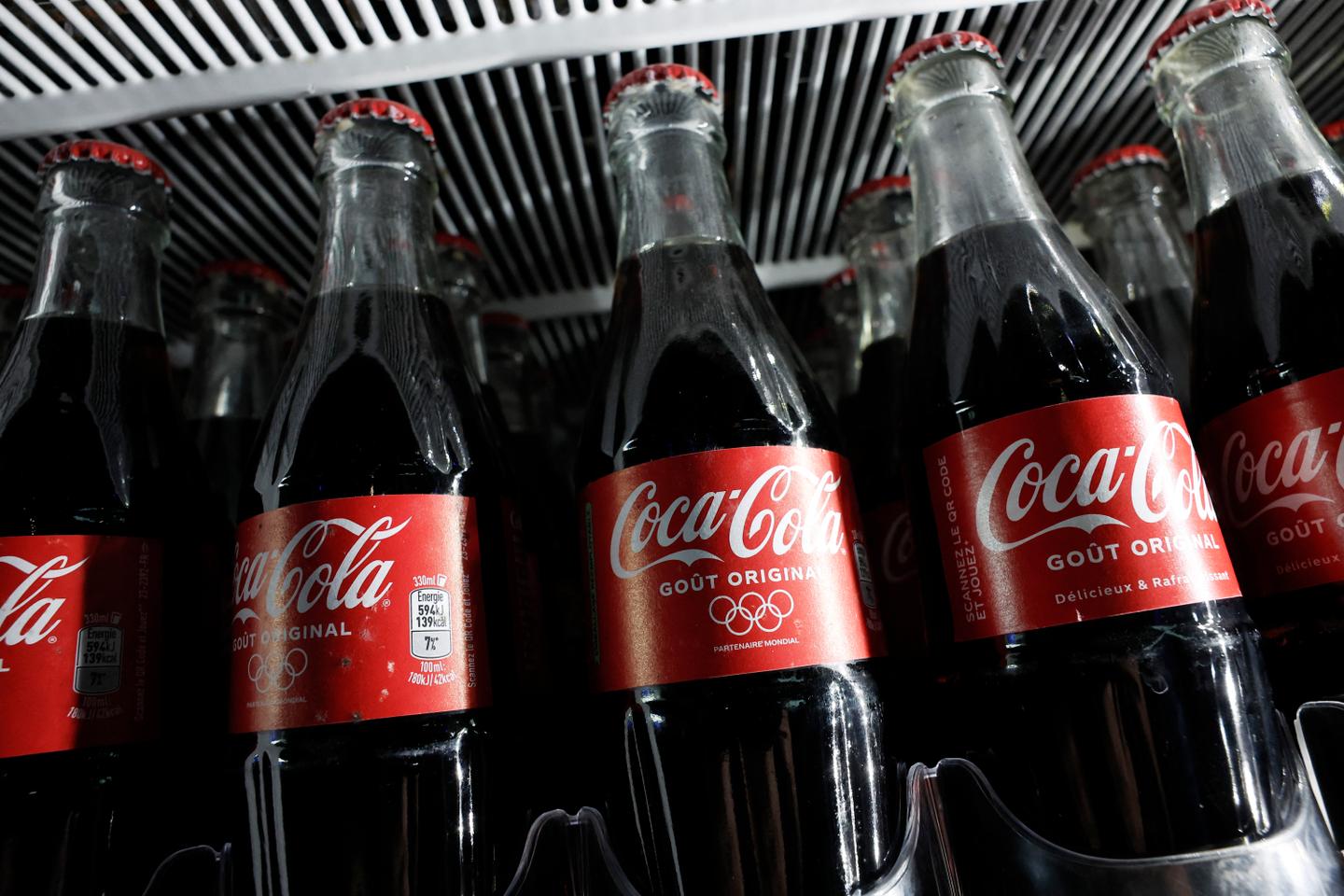


Coca-Cola, the exclusive beverage distributor of the Olympic and Paralympic Games, has for months been proclaiming its commitment, alongside Paris 2024, to "support the ambition" of halving the use of single-use plastic, compared to the 2012 London Games.
Communications from both the American soda giant and the Games' organizing committee have highlighted the unprecedented use of 700 water and soda fountains in both spectator refreshment areas and the athletes' village, as well as returnable glass bottles (notably in VIP areas), reusable and returnable eco-cups and finally the use of recycled plastic bottles "when operational conditions prevent the installation of fountains."
The aim is to distribute some 18 million drinks, half of them free of charge, to athletes and accredited guests. However, the US company was careful not to specify that almost half of these drinks will come in plastic bottles.
According to a confidential memo from the organizing committee in February 2023, obtained by France Nature Environnement (FNE), the national federation of associations for the protection of the environment, quoted by the news website Vakita, three-quarters of the 9 million drinks planned for sale will come from plastic bottles but be served in the aforementioned eco-cups.
The memo, which Le Monde was able to consult, indicates that 6.4 million drinks will be sold to spectators from plastic bottles, compared with just 1.6 million from fountains or glass bottles. "We've reached a new level of greenwashing," said Axèle Gibert, coordinator of FNE's waste network. "Coca-Cola is using a subterfuge, eco-cups, to hide a reality – the persistence of the massive use of plastic bottles."
'Playing with words'
Contacted by Le Monde, Coca-Cola and the organizing committee indicated that all these plastic bottles will be made from recycled materials (rPET, or recycled PET) and that they will not be handed out to spectators but "captured at source" to be sorted, compacted or crushed for subsequent recycling at the Infinéo plant in Beaune, eastern France, a joint venture between Coca-Cola France and Plastipak.
However, these efforts do not satisfy France Nature Environnement. "With recycled bottles, we certainly reduce the C02 impact, but we don't eliminate disposability," said Gibert. "Very quickly, we can no longer recycle them, and we still have to use virgin plastic [PET] to produce them."
Nathalie Gontard, a researcher at the National Institute of Research for Agriculture, Food and the Environment (INRAE) and a specialist in plastic packaging, said that Coca-Cola and Paris 2024 are "playing with words." She added: "These plastic bottles, even when recycled, are typically for single use, because the PET in the bottle degrades and absorbs contaminants. It cannot therefore be used more than once without being treated, crushed, washed, decontaminated and then polymerized again. This is in stark contrast to glass bottles, which can be reused again and again after a simple wash."
You have 47.01% of this article left to read. The rest is for subscribers only.
